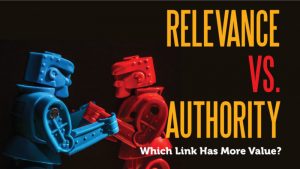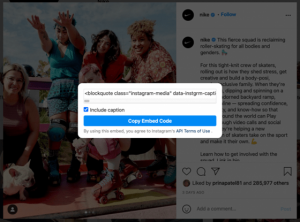Recently, I met with a CEO. He was trying to hire a new VP of Sales. For various reasons, he had struggled with getting the right person in place for a number of years.
He was about to hire an individual. This person was the only individual that had been interviewed. On paper, the candidate looked pretty good.
As I sat with the CEO, I asked, “What makes you think this person is the right person?”
“He seems like a good guy. He’s had a great track record of success, everyone who’s spoken with him likes him……” responded the CEO.
“But how do you know he’s the right person?” I asked, “What are you looking for?”
Usually, when I have conversations like this, this is the point where whoever I’m speaking with starts to get frustrated.
Typically, the response is, “I’m looking for a great [insert the job function–in this case VP of Sales]!”
My response is always, “What does that mean? How do you know what the right individual looks like? How do you know what to look for?”
When I ask these questions, the same look of frustration appears, they are inevitably wondering, “Why is this consultant slowing me down, I just want to hire someone!” Inevitably, their frustration is heightened since they have an open position and want to fill it as quickly as possible.
Ironically, most don’t recognize they are in a very complex, high risk, buying process.
Each person we hire in a sales role is a multi-million dollar investment. If we are hiring a manager or executive, that investment could be hundreds of millions to billions of dollars.
None of the people I talk to would ever make a multi million dollar investment without a rigorous understanding of, “What problem are we trying to solve, what are our needs, requirements, priorities, what are the risks, how do we mitigate/manage them, …….” They would carefully evaluate the alternatives, rigorously assessing the pros/cons, strengths/weaknesses of each alternative.
Yet, most of the time, we treat hiring decisions differently. We have a nominal job description, “the candidate must be capable of fogging a mirror,” we run the person through a battery of interviews and end up choosing “a good guy (guy is intended as gender neutral.)”
Rather than having clear criteria of what we are looking for, we are swayed by their “data sheets” (CV’s/Resumes) and their “sales calls” (interviews).
Perhaps only one person or a small team interviews the candidate. Those discussions often end up being discussions about what they’ve done, not what the company needs–because they haven’t formalized those.
In the end, a selection is made, usually for the person “we were most comfortable with,” without understanding whether that person was the right person. And usually, the need for filling the position quickly, outweighs the need for getting the right individual.
Hiring sales people or managers, at any level, is a multi-million investment. We can’t look just for “good guys” or people that we are “comfortable” with, we have to have a clear picture of what we are looking for.
What are the expected behaviors, attitudes, values, skills, competencies, experiences? What does it take for the individual to be successful in our company? What are we doing to help make the individual successful (onboarding)? What are the risks we are willing to take? How will be manage those risks? (Ask me for our Sales Competence Model, for a starter template on this.)
We do this with every other multi-millions investment, yet we seldom go through this rigor in our recruiting/hiring/onboarding effort.
Our jobs as hiring managers is not just to hire “good guys,” it’s about hiring the right individuals.
There’s another side to this, it’s the candidate side.
Yes, they are eager to get a job, they want to sell themselves. But if they aren’t the right people, we set them up for failure. If we haven’t done the work to figure out the characteristics of the ideal individual, instead, hiring “good guys,” there’s a high probability they won’t succeed (voluntary/involuntary attrition data seems to reinforce this.). We cheat them of the opportunity to maximize their success, when we don’t do the homework in developing the ideal candidate profile.
No one wants to go into a new job and fail, but when we don’t do our jobs, there is a high likelihood they will fail. And it’s not their fault, it’s our fault for selecting the wrong person.
Hiring is more important than getting “good guys.” It’s about getting the right individual and helping them achieve success.
Business & Finance Articles on Business 2 Community(37)








